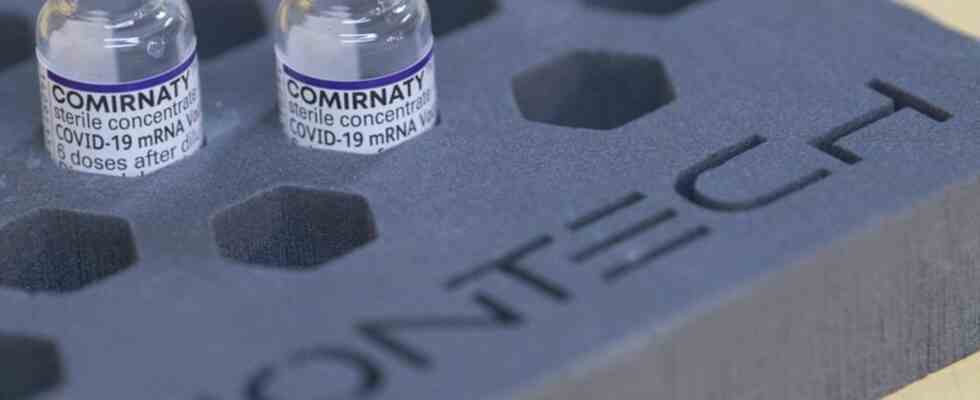research
Fact check: Does Biontech doubt its own vaccine?
According to the current state of science, Comirnaty is around 90 percent effective against severe Covid 19 disease when infected with the delta variant – with the omicron mutant, initial data show that the protection is less good. Photo: Sebastian Gollnow/dpa
© dpa-infocom GmbH
With reference to an internal document, the vaccine manufacturer Biontech is accused of not being at all convinced of its corona preparation. What is it about the AfD claim? A fact check.
Biontech’s vaccine has been used worldwide against the corona virus for almost a year and a half. It offers millions of people protection against serious Covid diseases. Although many international studies have already proven this, opponents of vaccination continue to storm against the drug.
With reference to a Biontech document from the USA, the manufacturer was recently accused of not being convinced of his vaccine at all.
Claim: “Biontech doesn’t even believe in vaccination itself,” says the AfD, for example.
Rating: Wrong.
Facts: The focus of the accusation against the pharmaceutical company from Mainz is its report to the US Securities and Exchange Commission (SEC) of March 30, 2022 for the 2021 financial year. According to the US Commercial Code, such a report must be submitted annually by foreign stock corporations will.
In principle, Biontech refers in this report to the “high level of protection” of the vaccination. The agent offers “a high level of protection against critical variants, including alpha, beta and delta”. According to the company, the latest laboratory studies have also shown that three doses of vaccine were also effective against the Omicron variant.
But one sentence in particular in the 700-page paper heats people’s spirits. Biontech writes: “We may not be able to demonstrate sufficient efficacy or safety of our Covid-19 vaccine and/or variant-specific compounds to warrant permanent regulatory approval in the US, UK, European Union or in other countries where the vaccine has received emergency or conditional marketing authorization.”
Some conclude that even the manufacturer admits to having put an ineffective and unsafe remedy on the market.
The stock exchange supervisory authority makes precise regulations
But that’s not true. The statement is made in a cautionary statement regarding forward-looking statements. This legal information is prescribed in detail by the stock exchange supervisory authority in order to avoid possible claims for damages by investors.
In the Biontech report, this regulation means that all conceivable influences on company profits and business development must be described. This should enable investors to get an idea of all possible risks.
Potential uncertainties listed include, but are not limited to, competition from other vaccines and their efficacy, cost, shipping and storage options, safety, side effects, and durability of the immune response. The business results could also be influenced, for example, by “the extent to which a Covid-19 vaccine will continue to be necessary in the future”.
The Biontech vaccine Comirnaty is currently subject to conditional market approval in the European Union. This was first granted in December 2020 and extended by another year in November 2021.
How Comirnaty did in studies
The European Medicines Agency (EMA) places the same requirements on the safety of Covid-19 vaccines as on any other vaccine approved in the EU. With conditional approval, data is evaluated as soon as it becomes available – rather than when all investigations are complete.
After an initial emergency approval in the USA, the FDA had already granted full approval for the drug in August 2021.
According to the current state of science, Comirnaty is around 90 percent effective against severe Covid 19 disease when infected with the Delta variant. According to the Robert Koch Institute, initial data show that the protection of the omicron mutant is less good.
In a Pfizer-funded study, three-dose efficacy against omicron hospitalizations was 85 percent within the first three months after vaccination. But it dropped to 55 percent after three months or more. At no time during the pandemic have well-known researchers claimed that a corona vaccination protects 100 percent against Covid-19.

